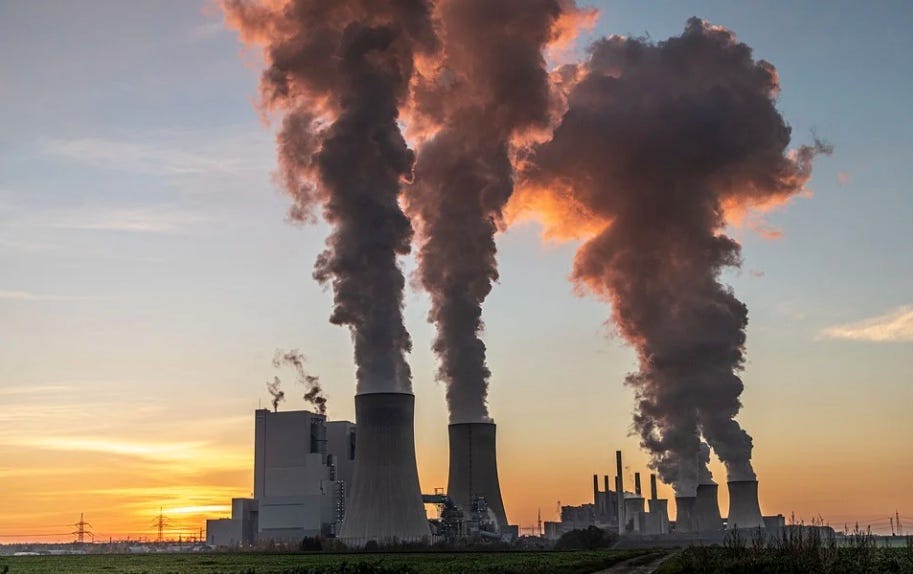A new obstacle to the AI data center rush
Welcome to Callaway Climate Insights, your guide to global climate finance. Please enjoy and share with your colleagues.
Today’s edition of Callaway Climate Insights is free for all our readers. We really want to bring you the best and latest in climate finance from around the world. Please subscribe now.
As much as the world rushes to push fossil fuels to feed the frenzy in AI data centers, renewable energy will still makes up the bulk of power demand for them in the next decade, the International Energy Agency said in a key report early Thursday.
That’s the good news. The bad news from the IEA is that up to 20% of planned growth could be delayed because of outdated and inefficient electric grids. This is especially true in the U.S., and specifically on the East Coast, which houses the current majority of data centers in the corridor from Northern Virginia to New York City.
Much of the problem is in the backlog of new energy sources, i.e. renewables, plugging into the three major U.S. grids. This is something that the current administration could go a long way toward fixing with permitting reform, which should be right up its alley.
But the potential delay can be added to the list of concerns about the economy and supply chains that has caused some big tech companies, such as Microsoft MSFT 0.00%↑, to hit pause on data center expansion recently.
All of which further casts the shadow of concern about a bubble in AI stocks on Wall Street, even with the latest correction.
Still, the IEA report is positive in its expectations for AI and global electricity demand in the next five to 10 years. But as we talk more and more about energy security, it may be that it’s not how much energy we have but how we push it out that is the real security issue.
Investors in grid projects and startups that make electricity flow faster will be on the front lines of this for years to come.
Don’t forget to contact me directly if you have suggestions or ideas at dcallaway@callawayclimateinsights.com.
Follow us . . . .
Twitter | LinkedIn | Facebook | Instagram
Zeus: Whistling past the 'beautiful black coal' industry graveyard
. . . . Anyone who’s ever poured a batch of dusty charcoal into a Weber grill knows coal isn’t beautiful or clean, writes David Callaway. And anyone who thinks energy companies are going to invest millions on new coal plants just because President Donald Trump says so should talk with our blacksmith. The flurry of executive orders this week designed to rebuild the dying coal industry is but the latest example of MAGA disinformation campaigns running up against rational markets. In the end, customers will choose the cheapest, most reliable energy source, and coal’s days are over.
Thursday’s subscriber insights

Carbon taxes by any other name
. . . . A GOP effort to boost the fossil fuel industry’s nascent carbon removal strategy has come up with a unique new idea — ride the international tariff wave. Instead of passing a carbon border tax on exports of dirty metals, cement and renewable energy components, two Republicans have renamed it the Foreign Pollution Fee Act and directed it at China.
Instead of billing it as a way to reduce emissions by keeping high-carbon products out of the country, as many other nations have done, the new bill would seek to level unfair trade imbalances, according to Axios.
The first thing that’s surprising here is that it is coming from the right, which has always promised to fight proposed carbon taxes, such as the one proposed by President Barack Obama more than a decade ago. The second is that by directing it at China, supporters have found a way to restart carbon removal plans after many of the government’s cutbacks froze potential projects.
We’ve always suspected that many of the most important clean energy and carbon removal projects would find a way to survive by rebranding themselves as energy security projects.
Now we can see that clever marketers have even gone beyond that to ride the Trump tariff train. By any other name, however, it’s still a carbon tax.
Editor’s picks: Buzzy environmental warriors; plus, manufacturers look to green tech
Watch the video. Bees and their impact on the environment: What’s all the buzz about bees? CBS Saturday Morning combs through how they impact nature and the environment.
Green tech is an opportunity for manufacturers
Manufacturers worldwide say they see sustainable technologies as their greatest business opportunity. Yet they also are uncertain about the impact of global events on manufacturing and have rising concerns over trade disputes, protectionism and political instability. That’s according to a new Global Manufacturing Risk Report released by Willis, a WTW business. The survey, which gathered insights from 400 senior decision makers from around the world, explores how they perceive the fast-changing manufacturing landscape. The survey found that 63% of respondents ranked sustainable manufacturing among their greatest business opportunities, highlighting their intent to leverage change for competitive advantage and capitalize on its potential to attract customers and investors. Some 75% of respondents also said trade disputes and protectionism were among their greatest geopolitical concerns. Garret Gaughan, head of direct and facultative at Willis, said: “Being green is often seen more as a cost and a burden than a profitable business proposition, but our survey suggests that perception is changing.”
Latest findings: New research, studies and projects

The more climate vulnerability, the fewer IPOs
This study, titled How Climate Vulnerability Affects IPO Activity: Evidence from OECD Countries, investigates the effect of climate risk vulnerability on IPO activity across 28 Organization for Economic Co-operation and Development (OECD) countries between 1995 and 2020. Using the ND-GAIN Climate Vulnerability Index, they authors wrote, they find that greater climate vulnerability is associated with a decline in IPO activity in terms of the number of offerings and total proceeds. These findings suggest that elevated climate risks heighten financial uncertainty, discouraging firms from going public and dampening investor interest. Importantly, the study shows that this negative effect is lower in countries with higher levels of climate readiness. The results are robust to a range of model specifications, lagged analyses, and instrumental variable approaches. Authors: Conrado Diego García-Gómez, University of Valladolid; Ender Demir, Reykjavik University; Jose Maria Diez Esteban, University of Burgos.
More of the latest research:
From Harm to Hope: Subsidy Reforms for a Green Global Economy
Forecasting County-Level Food Waste in U.S. Retail and Consumers
Words to live by . . . .
“To pit the economy and environment and our humanity against each other is a retreat to the kind of outdated, failed ideological thinking that got us into this mess in the first place, not what’s needed to get us out of it.” — Actress Cate Blanchett, in a recent interview with The Telegraph.




